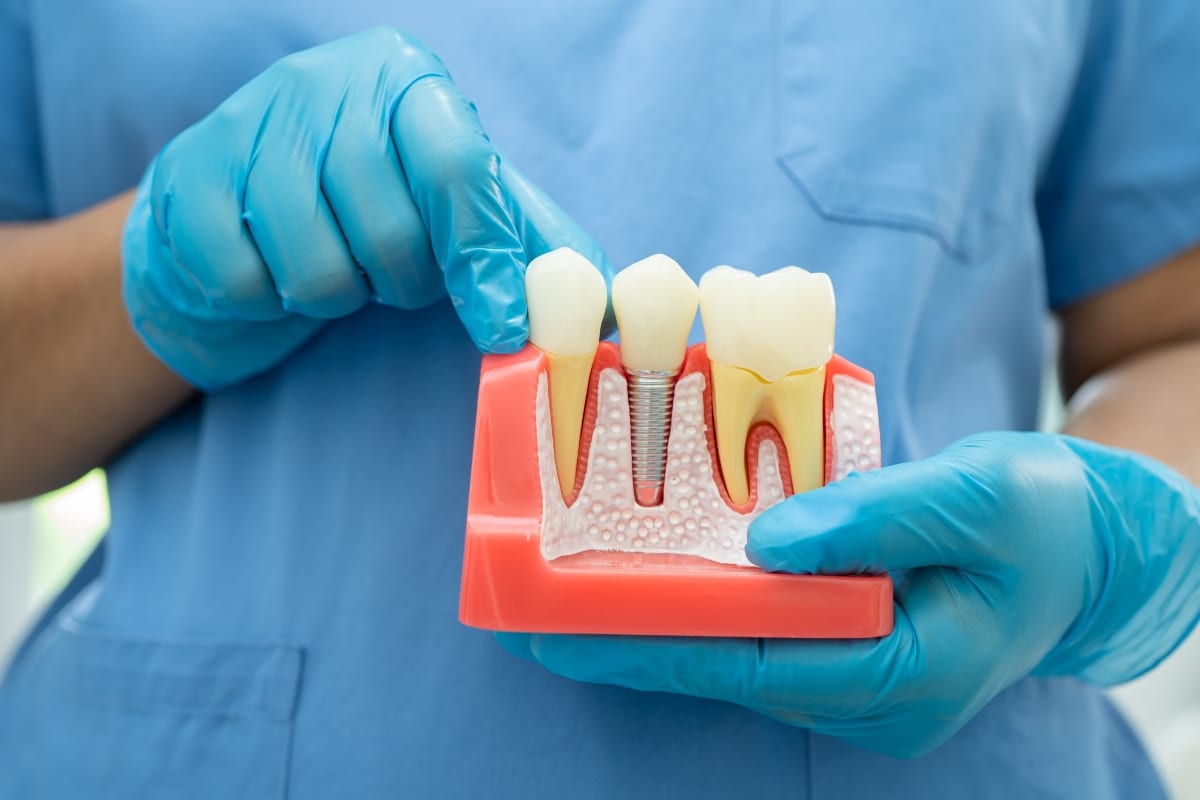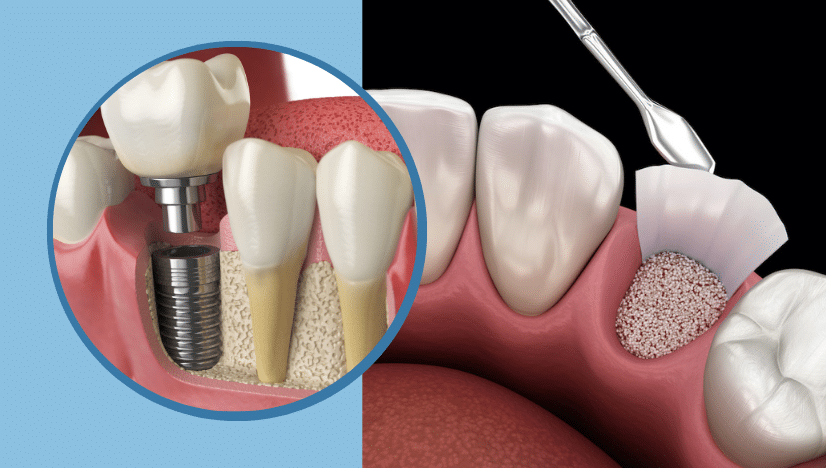
The Importance of Bone Health for Dental Implants: Do You Need a Bone Graft?
Dental implants transform smiles but depend on healthy bone to succeed. This important truth is disregarded by most patients. Bone health determines whether or not implants succeed in the long run.
Lost teeth result in bone loss, which makes it difficult to place the implant. Gum disease and infections also undermine the jaw foundation. Untreated damage can lead to the collapse of implant support.
This blog reveals why bone matters, when bone grafts are necessary, and how they ensure long-term dental implant success.
What is the Role of Bone in Dental Implants?
Osseointegration is the term for implants to be directly held by the jawbone for stability. Dense bone provides a solid base for implant posts. Weak bone does not have the capability of firmly holding the implants. Without adequate bone volume, implants sink in under regular chewing pressure.
Proper bone volume ensures strength and durability long-term. Healthy bone also nourishes the gum tissue covering the implants. Dense bone protects general oral health and prevents implant complications. Strong bone patients experience better chewing function and normal comfort.
What Triggers Bone Loss in the Jaw?
The loss of teeth without replacements hastens bone loss. Delayed placement of implants promotes this natural process. Gum disease destroys bone by breaking down tissue support. Chronic infections accelerate the deterioration of jawbones.
Trauma, fractures, and oral surgery weaken bone volume as well. Aging reduces density, which makes it harder to site implants. Failure to stimulate chewing after tooth loss speeds up the loss.
These are important reasons for placing dental implants in Coraopolis as soon as possible to maintain bone integrity.
When Is a Bone Graft Needed for Implants?
Severe bone resorption typically requires grafting for implant success. Tooth loss over the long term causes extensive bone space voids. People with high levels of severe gum disease typically lack adequate support for implants. Bone grafts substitute density for stability.
Routine daily situations include patients who have lost teeth years ago. Others have fractures or infections of the jaw that reduce bone quality. Grafting gives implants the solid foundation they require for stable, predictable success in the long term.
What Does a Bone Graft Procedure Entail?
Bone grafting begins with meticulous planning and imaging. Dentists select the best graft material for the case. The natural bone, donor tissue, or synthetic material may be employed. Grafts take the place of missing or thinning bone. New bone cells form and integrate over time.
Healing normally takes several months before implant placement. This makes the jaw robust and ensures successful osseointegration. Bone grafting maximally increases the likelihood of implant stability.
Benefits of Bone Grafting to Augment Dental Implants
Bone grafting restores lost bone and allows space for implants. Solid bone allows dental implants to feel like natural teeth. Stability allows implants to last longer with fewer risks.
Patients also have improved chewing and better nutrition. Sinking cheeks are averted, and facial appearance is preserved by bone grafting. Recaptured bone increases implant candidacy even with decades of tooth loss. Grafting keeps implants feeling and looking natural with preservation of overall oral health.
Must All Patients Undergo a Bone Graft?
Not all patients require bone grafting for dental implants in Coraopolis. Bone volume and density determine if so. Position of the tooth and the implant also determine the grafting need.
Good-bone patients typically proceed to implant placement. Medical history, age, and oral status are all consideration factors. Advanced imaging helps determine bone measurement accurately. A thorough assessment ensures implants receive proper support. Only patients with inadequate bone require grafting before implants.
Bone grafting is safe and routine for dental implants. Healthy bone means long-lasting implant success. Grafting produces consistent results and healthier smiles.
A visit to a dental professional determines if grafting is needed. Patients who rebuild bone experience better function, appearance, and confidence. Visit us today to check bone health and achieve lasting success with dental implants.





